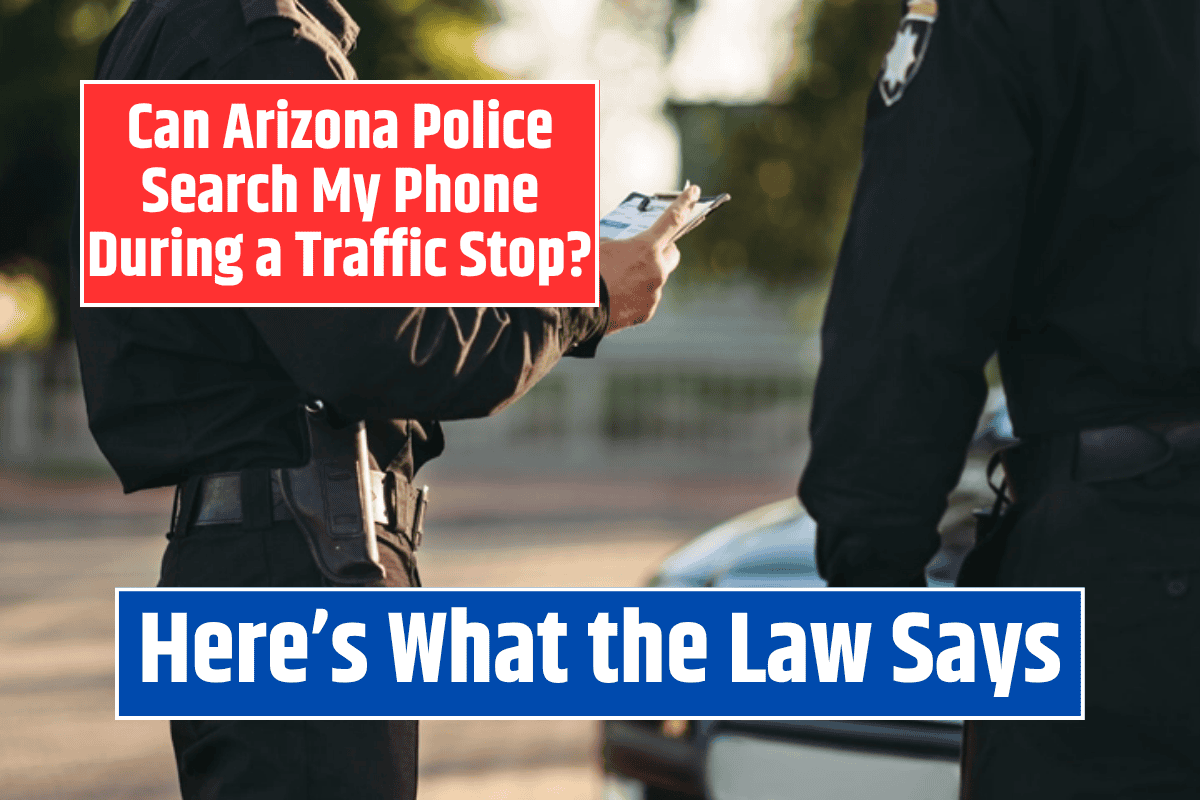In today’s digital age, your smartphone holds nearly your entire life—texts, emails, photos, call history, location data, and more. Because of that, it’s one of the most personal items you carry. If you’re pulled over by police in Arizona, can they search your phone without your permission?
The answer depends on several important legal rules. Here’s what the law says about phone searches in Arizona during a traffic stop.
Your Right to Privacy: The Fourth Amendment
The Fourth Amendment to the U.S. Constitution protects you from unreasonable searches and seizures. This means that police usually need a search warrant—approved by a judge—before they can search your phone.
In 2014, the U.S. Supreme Court made this very clear in the landmark case Riley v. California. The Court ruled that phones are not like wallets or backpacks, and police cannot search them during or after an arrest unless they have a warrant. This applies across all states, including Arizona.
Arizona Law and Digital Privacy
Arizona follows federal law when it comes to protecting your phone’s data. Just being pulled over in a traffic stop does not give police the right to search your phone. They must meet one of the following conditions:
1. You Give Consent
If you say “yes,” then the officer can legally search your phone. But you’re not required to give permission. You can politely say, “I do not consent to a search of my phone.”
2. They Have a Search Warrant
A valid search warrant allows police to access your phone. This warrant must be signed by a judge and should clearly state what data they are allowed to examine—like call logs, messages, or app data.
3. There Are Exigent Circumstances
If police believe there’s an emergency—like a missing child or immediate danger—they might search your phone without a warrant. But this is rare and must meet strict legal standards. Courts will later review the officer’s decision to make sure it was justified.
4. The Phone Is Abandoned
If you leave your phone behind or deny that it belongs to you, police might claim it was abandoned. In that case, they may be able to search it without needing a warrant. However, proving abandonment isn’t easy and depends on how and where the phone was found.
5. Search Incident to Arrest? Not Anymore
Police used to argue that they could search anything on you if you were arrested, but Riley v. California stopped this. Now, even if you’re arrested in Arizona, officers still need a warrant to search the contents of your phone.
Can Police Ask You to Unlock Your Phone?
Yes, they can ask, but you are not legally required to unlock it or give them your passcode or fingerprint. Under the Fifth Amendment, you have the right not to incriminate yourself, and giving up your password could violate that protection.
If an officer pressures you, stay calm and say: “I would like to speak to an attorney before answering any questions.”
What You Should Do If Police Ask for Your Phone
If you’re stopped by police in Arizona and they ask to search or unlock your phone:
Stay calm and respectful.
Clearly say, “I do not consent to a search of my phone.”
Do not hand over your phone or unlock it.
Ask if they have a warrant.
If they persist, ask to speak to a lawyer.
Note down officer names and badge numbers, if possible.
Why It’s Important to Speak to an Attorney
If police searched your phone without a warrant or pressured you into unlocking it, your constitutional rights may have been violated. In Arizona, illegally obtained evidence can often be thrown out in court. That’s where an experienced defense lawyer like Arja Shah can help.
Whether you’re in Phoenix, Scottsdale, or Tempe, getting legal help quickly can make a big difference. A lawyer can challenge the evidence and ensure police are held accountable for breaking the law.
In Arizona, your phone is protected under strong federal and state privacy laws. Police cannot search it during a traffic stop unless you give permission, they have a valid warrant, or there’s a rare emergency.
If your rights are violated, don’t stay silent—contact a skilled criminal defense attorney immediately. Your phone holds your personal life, and the law is on your side to protect it.












